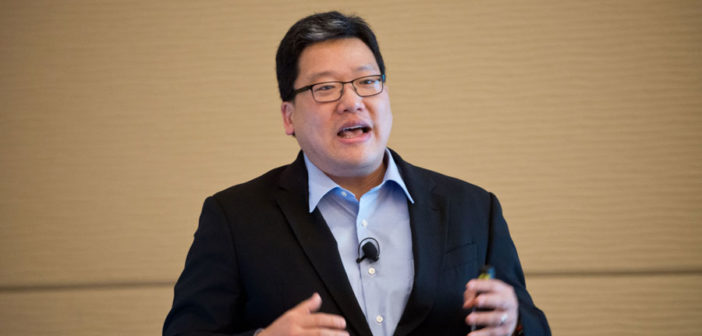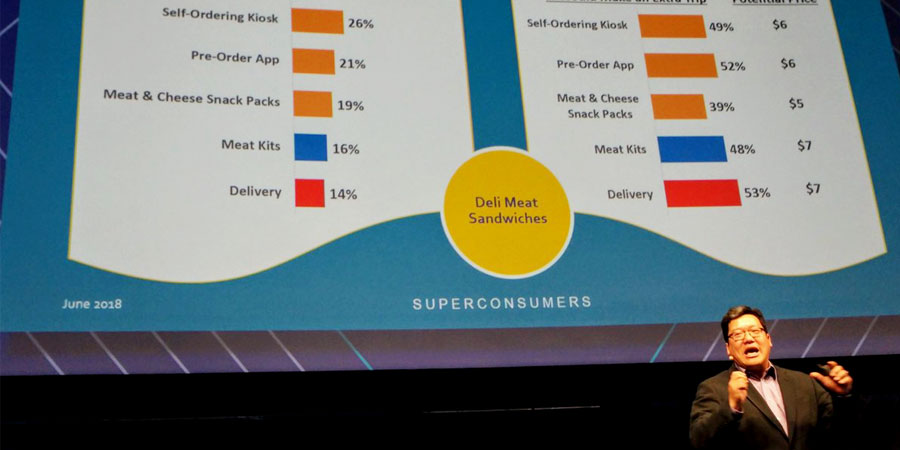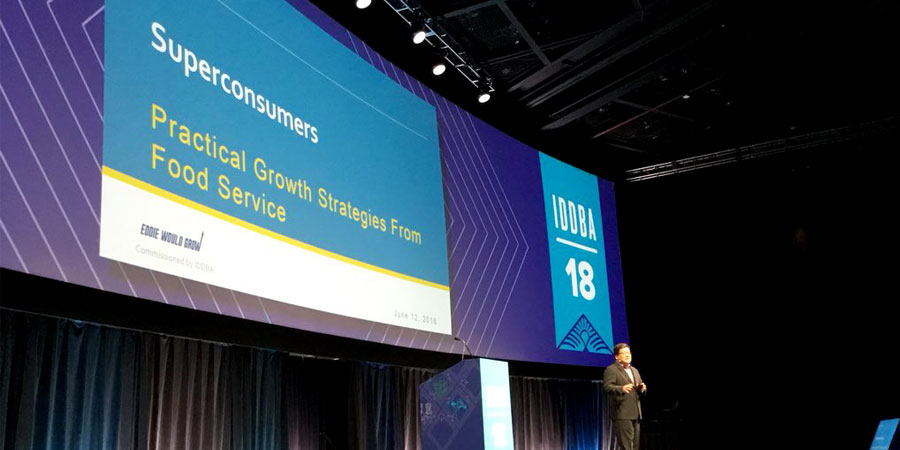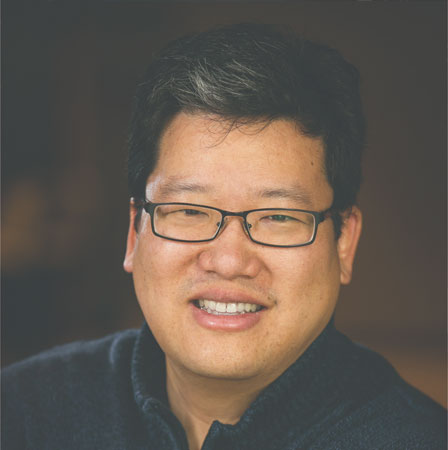BK: Tell us a bit about yourself and what makes you go ‘ Wow, another day at work ‘
EY: The main thing that makes me excited to work is the opportunity for epiphany about a consumer and how a customer can take that insight and innovate such that 1 + 1 = 11.
To me an epiphany is an idea that is sharp and stops you in your tracks because it not only overturns conventional wisdom but reshapes your worldview about the category.
For example, at the superficial level most people would say processed cheese is unhealthy. But what happens if processed cheese bought at lot to pour over vegetables, served to kids who won’t eat their vegetables otherwise? In the consumer’s mind, it is healthy and processed cheese was an integral part of that. And this makes the processed cheese worthy of a price premium typically reserved for organic/natural products.
Humans are impossibly complex, innovative and are interesting to no end. And this is something that most companies often underestimate.
BK: What triggered your interest in consumer insight and customer behaviour?
EY: Going into college, I thought I would be a philosophy major. Then I ended up studying economics and political science, since I went to the University of Chicago and it seemed like a wasted opportunity to not do that. And I am glad I did so, as economics and political science seemed so useful at predicting and preparing for the future.
Many of my classes started out with the assumption, “assume a rational consumer with perfect information”. It was a necessary assumption, but an impractical one if you think about yourself as a consumer or any normal human interaction, which is intermingled with emotion and aspiration.
But the real truth is that I wasn’t sure what I wanted to do, so I stumbled into consulting. A colleague of mine left my first firm to join The Cambridge Group, where I spent 18 years and was a senior partner there. It was there that I fell in love with understanding consumers and saw its power to help companies grow.
BK: The business eco system has migrated from a ‘ caveat emptor ‘(buyer beware) mode to a ‘ caveat venditor ‘ (seller beware): what in your opinion is the cause and effect of such a shift?
EY: Most of the great technological innovations have benefited businesses, but provided even more value to the consumer. The internet provides perfect information, so now consumers can easily review and pick truly the best product versus just relying on a brand. Productivity innovations make things cheaper for consumers, so they have more buying power. Social media gives consumers a mega-phone to complain and the whole world can see it. Finally, there is an abundance of capital and in general barriers to enter a business have gotten lower.
So you have more competition, with lower cost structures ready to compete on price vying for more powerful consumers than ever, which leads to caveat venditor.
BK: There has been a lot of talk about the emergence of ‘ customer segment of one ‘ and how today’s tools like AI and Machine Learning and the emergence of Data Science is helping brand owners and marketers. What are your thoughts on this?
EY: That is certainly the trajectory of where business is headed, but certain categories and companies will get there first. Netflix is a great example, but not just because of their technical prowess, but because of inherent category dynamics. Movies and TV shows reveal a lot about consumer demand. If you watch one Fast & Furious, you’ll likely want to watch the next. If you watch a movie with a particular actor over and over again, then it tells you a lot. And because their category moves fast–the average American consumes over 40 hours per week of media–they get even more data. Their recommendation engine is getting to a customer segment of one.
But slower categories where the products purchased and consumed are not revealing will get there much slwoer.
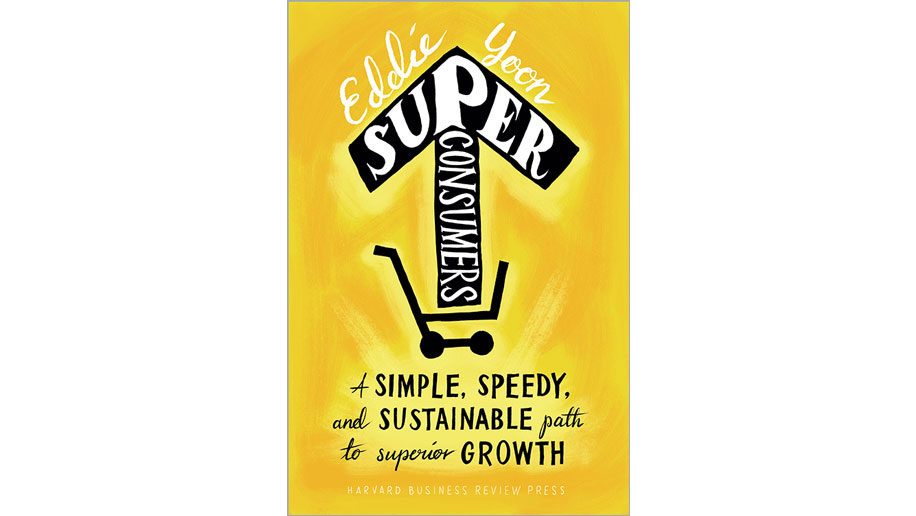
BK: What was the big motivation for you to write a book like ‘ Superconsumers ‘? And do you see some bit of Love Marks that Kevin Roberts spoke about in his book by the same name some years ago?
EY: The more senior and experienced I got in growth strategy, the more I saw some common patterns. I’ve been fortunate where eight clients of mine have doubled or tripled their businesses in a 5-10 year time span. When I saw the same patterns and themes there, I realised that knowing how to grow your business the right way was a lot easier and that it was my obligation to share that with the world.
Second, I love hearing about a great growth story. Opening my ideas and insights up, would increase the number of stories I got access to.
Finally I wanted to see if my hypotheses were correct. So I figured if I open sourced these ideas, more people would try them and I’d get more data and stories about growth.
BK: As you convey in the book that Superconsumers are agnostic to any industry (you find them even in the ‘ Office Supplies ‘ category isn’t it?) and they exist across verticals, what do brand marketers have to do to identify and make the most of them?
EY: To me the best way is to work backwards. Start with what key decision do you need to make? Second figure out what data you need to feel confident about your decision. Finally, figure out how you can ‘superconsumerise’ the data you trust the most.
Superconsumerising your data is simply identifying the distinct buying patterns, emotions and benefits sought by the people who buy the most and care the most about the category. Not your brand, but the category.
With that approach, there are an infinite number of ways to figure this out. But my goal was to provide a compass, not a GPS, because I think people learn more that way and get better results.
BK: In an era of deep discounting and perennial promotions, how challenging is it for marketers to distill the Superconsumer from the vast majority who prefer biting into the forbidden fruit?
EY: Ironically, supers are far more likely to buy both the most premium brands and the cheapest, private label brands in a category. The reason why is that they are smart enough to have figured out multiple use cases or jobs for the category. Consider cream cheese. They might use very premium cream cheese when it is a spread and the star of a breakfast, but use cheaper private label when it comes to baking as an ingredient, where it’s just a supporting actor.
The best marketers will use price discounts like a precise surgeon, where you are crystal clear on what incremental value–both economic and strategic–you are getting in return for your discount. Are you blindly discounting whenever and to whomever? Or are you strategically discounting at key parts of the year when your manufacturing plants are not fully utilised? Or to increase purchase frequency and trips down the aisle? Are you strategically discounting at key price points that trade consumers up from the very bottom to the top tier? Are you not discounting the tier right below a new innovation, so that supers are enticed to try it? Are you promoting across categories in a clever way, because a super of 1 category is a super of 9?
Loyalty is an entirely different question and I think is not always the most helpful way to run a business. Supers are smart and very high standards. Given that, they are loyal to the best performing product or service that best fits their need at that right moment. If you are the best for that situation, then you’ll win their loyalty. If you are good enough for a situation that warrants only a ‘good enough’ product and have the best price, they will switch.
To me, loyalty is not something you hope for from a consumer. What you really want, is a clear and compelling articulation of ‘what must be true’ for a superconsumer to stay loyal to you the next time. The true value is honesty and clarity on willingness to pay. Supers can do that because they are so smart and articulate. Regular consumers will tell you to make it better and cheaper at the same time and won’t give you honest or usable advice on what you need to do for them to pay more, because they simply don’t care enough.
BK: Which are the brands in your opinion that have mastered the trend of developing and aligning with Superconsumers? And which are the ones you think have missed out despite being in the best position to capitalise on the trend? And why?
EY: Netflix as I mentioned. Tesla is another one, seeing how Elon Musk spends a lot of time interacting with consumers on Twitter and taking suggestions for optimising the brand. Starbucks is another great one, especially via their app. Domino’s is another great one.
BK: How important you think is culture in an organisation especially in the context of recognising, respecting and rewarding Superconsumers?
EY: Culture is extraordinarily important, starting with how many executives are themselves superconsumers of the category? My anecdotal experience is the bigger the company, the fewer the superconsumers are in the company. Without superconsumers working for you, it’s harder to have a culture that is oriented towards and deeply understands supers.
BK: Where do you stand in the debate between ‘ The customer is always right ‘ and ‘ The customer is always late ‘ ?
EY: It depends on the organisational function and I’d probably add nuance to the statement. For customer service, marketing, innovation and sales, the statement should be all customers always feel they are right. And since customers deserve our empathy and respect, we should treat them as such in nearly all circumstances barring an ethical or abusive situation.
For the customer is always late, I’d say it’s the case that many customers are late, but nearly all Supers are far ahead of you. This is particularly true of larger organisations where most employees and executives are themselves not superconsumers of the category. In that case, the organisation is always late. Smaller, fast growing companies or startups tend to employ and be led by more supers, and thus perhaps they are not as far behind. But the reality is there is always one super who will be far ahead.
Said differently, if you think the customer is always late, then you haven’t found the right customers yet.
BK: What do you enjoy doing most; Consulting, Writing, Speaking? Or being in Hawaii?
EY: I’d love to do all three…while in Hawaii! 🙂
I’ve come to realize all three areas are deeply synergistic. I write and speak about what I’ve learned from consulting, otherwise it’s just theory versus real results. But I need to write to know what I think. And I need to speak to hone my writing and whittle it down.
BK: Do you see brand extensions for ‘ Superconsumers ‘ in the form of a Podcast series, a TV show, a book sequel?
EY: Yes! I’ve long thought about a podcast and potentially a book sequel. TV show is one I haven’t thought of yet (unless it is shot in Hawaii).
But I’m working on a “productized” version of superconsumers designed for entrepreneurs and angel investors to make a better match if possible. Stay tuned on that.
BK: Which are some the books that have inspired you?
EY: I’m excited about Nichedown, by Christopher Lochhead and Heather Clancy. It’s about solo-preneuers and other entrepreneurs and has all the key insights for what has helped me be confident now at EddieWouldGrow.
I can’t wait for Dolly Chugh’s book, The Person You Mean to Be: How Good People Fight Bias. She’s a prof at NYU, super smart and a wonderful person. This is an important book I can’t wait to read.
Otherwise, I love Creativity Inc, by Ed Catmull. Barbarians at the Gate and Liars Poker are books I love to re-read. My favourite books on growth strategy are by Chris Zook, like Profit from the Core.
–
Seeking to build and grow your brand using the force of consumer insight, strategic foresight, creative disruption and technology prowess? Talk to us at +9714 3867728 or mail: info@groupisd.com or visit www.groupisd.com

